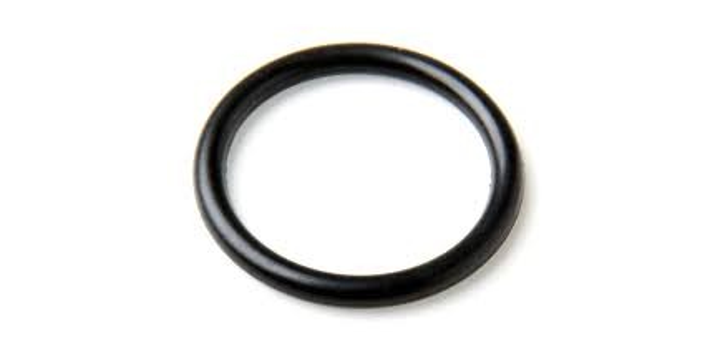ORING JIS B2401 P230
ID 229.50 x CS 8.40
Material : Nitrile (NBR) 90 Shore
Nitrile is often referred to Buna (Buna-N) and NBR.
Nitrile elastomer being affordable is a common material widely used in the industry where sealing take place using O-Ring. It is popular in the industry due to it ability to withstand a wide range of temperature ranging from (-30`C to 100`C).
It has excellent resistance to petroleum application, it is rated good in the Gas impermeability. In addition Nitrile material are one of the best in its compression and abrasion resistance. The only down side of Nitrile have a poor ozone and weather resistance and only moderate resistance to high temperature.
However Nitrile are not a restricting factors in many applications.
Temperature Range
Low : -22`F / -30`C High: 212`F / 100`C
Overview on Application Rating for Material Nitrile (NBR)
Properties ( Rating )
Oils & Grease - Good
Tear Strength - Good
Fuel Resistance - Poor
Gas impermeability - Good
Compression - Excellent
Abrasion Resistance - Good
Other than the size and material type, there is one final option that you need to take in consideration. And that is the Durometer. Durometer are being classify as an industry standard to measure the elastomer hardness. Durometer is measured and listed in accordance with Shore A scale. Typical standard hardness for the elastomer are 70 shore, 75 shore and 90 shore to choose from depending on the material that you are using. The higher the value of the shore indicates that the material you are using is harder.Durometer is also generally stated and accepted with a “+/- 5” tolerance.
Primary Usage
O-Rings and rubber seals are generally used for:
· Applications that require resistance to OIL
· Applications that are required to work in low temperatures (-0°C)
· High performance Fuel systems that requires strictly no leakage
- Aircrafts
- Marine Ships
- F1 Cars
· General Industrial Use
Tips for installation of an O-ring
O-rings need to be installed properly for a perfect fit and sealing. It is important that you install the O-ring in a prescribed manner to ensure your application continues to function properly. You will also ensure you increase the life of the application.
So how do you install an O-ring?
The process of installing an O-ring into a male gland is an intricate affair that should be carefully undertaken. Glide it along the shaft so as it reaches the gland. At that point, it should easily snap into place. Simple as it might sound, a number of steps will ensure that the O-ring doesn’t get damaged.
If you want to install an O-ring correctly and within a short time, here are steps to follow:
· Covering and lubricating the threading of the shaft
The threading of the shaft has the potential of tearing the rubber seal. Cover the threads using a masking tape and then lubricate them to allow for easy passage of the O-ring. The aim is to have the O-ring slide through without getting torn.
· Don’t force it over sharp corners
That’s a tip that will save you the stress of a torn O-ring. In fact, running the O-ring over jagged or sharp objects could get it torn. You may not be able to notice some of these tears. That’s why you should ensure you prevent them from occurring in the first place.
· Even stretching
You will have to stretch the O-ring over the shaft. Ensure you do it evenly. Pulling from one side is a no-no. If anything, you should stretch the O-ring as little as possible. You will not just get a tighter grip but added security too.
· Don’t roll it down the shaft
Instead of rolling the O-ring down the shaft, slide it. If you spiral wind or roll an O-ring, it cannot be properly installed. It will also not function optimally and can even end up being damaged. If you have a lubricant, apply it on the O-ring and you will keep it rolling.
· Finishing it off
Place the female component in a manner that allows its radius to go around the corner. This should be done when you are finalizing the installation process. Ensure the lead of this component is inside the chamfer. This is how you will be able to guarantee the safety of the O-ring.
For O-rings to perform optimally, they have to be properly installed. It doesn’t just provide secure sealing but also increases the service life of the component together with the application. Don’t compromise on this process.
Installation Guide

| Units | Discount | Unit Price |
|---|---|---|
| 1 ~ 9 | - | US $ 24.00 |
| 10 ~ 29 | 36% OFF | US $ 15.36 |
| 30++ | 63% OFF | US $ 8.88 |


